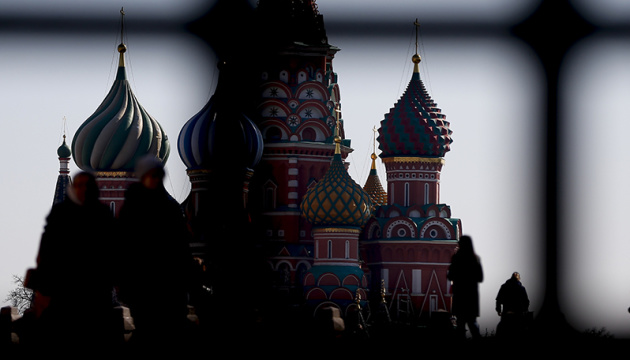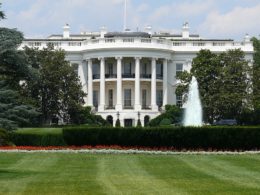In recent weeks, there has been growing momentum behind efforts to permanently seize the frozen Russian assets worth nearly $300 billion in response to the Kremlin’s war against Ukraine, as per Voice of America.
The Western countries have proposed different tools on how to confiscate Russian money and use them to help Ukraine rebuild its cities destroyed in Russian attacks while the US Congress fights over a $60 billion aid package for Kyiv.
For instance, the Biden administration has signaled its support for a legislative effort to ease the way toward the seizure of the approximately $50 billion-$60 billion in Russian assets held by US financial institutions.
The supporters of the move say the confiscation is necessary not only to aid Ukraine but also to send a message of disapproval of military aggression against a democratic country to Moscow.
Europe, which holds most of the Russian assets, apparently takes a more cautious path that could lead to the interest earned by frozen money being directed to Ukraine while leaving the underlying funds untouched.
In turn, the G7 has proposed treating Russian assets as collateral for zero-interest loans that could be used to fund Ukrainian reconstruction.
Russia has threatened to retaliate for any seizure of the country’s assets with similar seizures of Western assets under Russian jurisdiction, claiming the potential decision as illegal. However, the amount of foreign assets held in Russian banks is unclear.
Nevertheless, confiscation supporters say that the options to seize the assets, such as using seized funds as collateral for loans or outright expropriation, are compatible with existing international law and are legitimate responses to Russia's aggressive actions.
“The general view by many lawyers from multiple countries is that if this decision is made by international bodies, that it is an ‘authorized taking,’ whether it be the pledge against loans or just expropriating the assets themselves,” said Mark Kennedy, director of the Wilson Center’s Wahba Institute for Strategic Competition.
There are still some disagreements in the US over whether the government has the legal authority to go beyond simply freezing Russian assets and effectively transfer their ownership to a third party. While some legal scholars argue that existing US legislation provides sufficient authority, others dispute this interpretation.
Currently, both the House of Representatives and the Senate are considering the Rebuilding Economic Prosperity and Opportunity (REPO) for Ukrainians Act which would explicitly authorize the president to confiscate Russian assets held in financial institutions under US jurisdiction and transfer them to Ukraine's support fund.
Read more:
- G7 working groups explore options to confiscate Russian assets
- UK Foreign Secretary to US: Blocking Ukraine aid would be “Christmas present” to Putin
- Blinken: Denying aid to Ukraine risks unleashing Pandora’s box of aggression
- Biden: “Failure to support Ukraine is just absolutely crazy”
In recent weeks, there has been growing momentum behind efforts to permanently seize the frozen Russian assets worth nearly $300 billion in response to the Kremlin’s war against Ukraine, as per Voice of America.
The Western countries have proposed different tools on how to confiscate Russian money and use them to help Ukraine rebuild its cities destroyed in Russian attacks while the US Congress fights over a $60 billion aid package for Kyiv.
For instance, the Biden administration has signaled its support for a legislative effort to ease the way toward the seizure of the approximately $50 billion-$60 billion in Russian assets held by US financial institutions.
The supporters of the move say the confiscation is necessary not only to aid Ukraine but also to send a message of disapproval of military aggression against a democratic country to Moscow.
Europe, which holds most of the Russian assets, apparently takes a more cautious path that could lead to the interest earned by frozen money being directed to Ukraine while leaving the underlying funds untouched.
In turn, the G7 has proposed treating Russian assets as collateral for zero-interest loans that could be used to fund Ukrainian reconstruction.
Russia has threatened to retaliate for any seizure of the country’s assets with similar seizures of Western assets under Russian jurisdiction, claiming the potential decision as illegal. However, the amount of foreign assets held in Russian banks is unclear.
Nevertheless, confiscation supporters say that the options to seize the assets, such as using seized funds as collateral for loans or outright expropriation, are compatible with existing international law and are legitimate responses to Russia's aggressive actions.
“The general view by many lawyers from multiple countries is that if this decision is made by international bodies, that it is an ‘authorized taking,’ whether it be the pledge against loans or just expropriating the assets themselves,” said Mark Kennedy, director of the Wilson Center’s Wahba Institute for Strategic Competition.
There are still some disagreements in the US over whether the government has the legal authority to go beyond simply freezing Russian assets and effectively transfer their ownership to a third party. While some legal scholars argue that existing US legislation provides sufficient authority, others dispute this interpretation.
Currently, both the House of Representatives and the Senate are considering the Rebuilding Economic Prosperity and Opportunity (REPO) for Ukrainians Act which would explicitly authorize the president to confiscate Russian assets held in financial institutions under US jurisdiction and transfer them to Ukraine's support fund.
Read more:
- G7 working groups explore options to confiscate Russian assets
- UK Foreign Secretary to US: Blocking Ukraine aid would be “Christmas present” to Putin
- Blinken: Denying aid to Ukraine risks unleashing Pandora’s box of aggression
- Biden: “Failure to support Ukraine is just absolutely crazy”
In recent weeks, there has been growing momentum behind efforts to permanently seize the frozen Russian assets worth nearly $300 billion in response to the Kremlin’s war against Ukraine, as per Voice of America.
The Western countries have proposed different tools on how to confiscate Russian money and use them to help Ukraine rebuild its cities destroyed in Russian attacks while the US Congress fights over a $60 billion aid package for Kyiv.
For instance, the Biden administration has signaled its support for a legislative effort to ease the way toward the seizure of the approximately $50 billion-$60 billion in Russian assets held by US financial institutions.
The supporters of the move say the confiscation is necessary not only to aid Ukraine but also to send a message of disapproval of military aggression against a democratic country to Moscow.
Europe, which holds most of the Russian assets, apparently takes a more cautious path that could lead to the interest earned by frozen money being directed to Ukraine while leaving the underlying funds untouched.
In turn, the G7 has proposed treating Russian assets as collateral for zero-interest loans that could be used to fund Ukrainian reconstruction.
Russia has threatened to retaliate for any seizure of the country’s assets with similar seizures of Western assets under Russian jurisdiction, claiming the potential decision as illegal. However, the amount of foreign assets held in Russian banks is unclear.
Nevertheless, confiscation supporters say that the options to seize the assets, such as using seized funds as collateral for loans or outright expropriation, are compatible with existing international law and are legitimate responses to Russia's aggressive actions.
“The general view by many lawyers from multiple countries is that if this decision is made by international bodies, that it is an ‘authorized taking,’ whether it be the pledge against loans or just expropriating the assets themselves,” said Mark Kennedy, director of the Wilson Center’s Wahba Institute for Strategic Competition.
There are still some disagreements in the US over whether the government has the legal authority to go beyond simply freezing Russian assets and effectively transfer their ownership to a third party. While some legal scholars argue that existing US legislation provides sufficient authority, others dispute this interpretation.
Currently, both the House of Representatives and the Senate are considering the Rebuilding Economic Prosperity and Opportunity (REPO) for Ukrainians Act which would explicitly authorize the president to confiscate Russian assets held in financial institutions under US jurisdiction and transfer them to Ukraine's support fund.
Read more:





